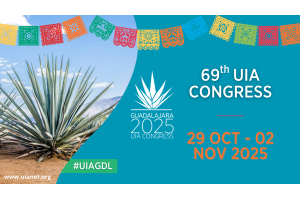The U.S. Business Immigration Landscape Eight Months Into The New Administration
It has been difficult to keep up with all of the policy changes the new Trump Administration has implemented that have impacted U.S. companies thus far. This article will attempt to outline those changes which extend far beyond border security and have created workforce gaps and compliance challenges for U.S. businesses across all industries.
U.S. Citizenship and Immigration Services (USCIS) recently issued three key policy updates enhancing vetting, good moral character (GMC) evaluations, and scrutiny of "anti-American" conduct in immigration adjudications. As a result, USCIS can now treat "anti-Americanism" as a basis for terminating or denying discretionary relief, such as employment-based visas. Endorsing terrorist organizations, and/or espousing anti-American ideologies or antisemitic views would all be considered “anti-American” conduct.
The U.S. government has gone to great lengths to integrate social media screening into immigration processes. U.S. Consulates and Embassies have been directed to screen for antisemitism and anti-Americanism, potentially denying benefits or initiating revocations of previously issued visas based on social media posts deemed to have endorsed harmful ideologies. Even old conduct from years ago may now become relevant. The U.S. Department of State has in fact revoked the visas of hundreds of individuals who were involved in activities that run counter to U.S. national interests.
USCIS also just restored a holistic, totality-of-circumstances GMC standard for naturalization applications. Adjudicators must now weigh various positive factors such as community involvement, stable employment, etc., against potential disqualifiers such as aggravated felonies, DUIs, etc., including unlisted conduct “contrary to societal norms”.
Immigration practitioners have seen a tightening of the standards by USCIS for various visa programs such as the H-1B, L-1, O-1 and EB-1A categories as well as increased denials of blanket L-1 visa applications at U.S. Embassies and Consulates.
The administration’s sudden termination of various lawful programs such as temporary protected status and humanitarian parole, each of which provided employment authorization for the beneficiaries of those programs, has left many employers scrambling to fill staffing shortages and struggling to comply with new enforcement directives.
Mass workplace immigration raids by U.S. Immigration and Customs Enforcement (ICE), the enforcement arm of U.S. immigration laws, have also become commonplace under the current administration leaving many businesses that rely on immigrant labor in critical industries (e.g., construction, agriculture, food processing and hospitality) in a tremendous bind. And with ICE audits dramatically on the rise, employers now face heightened scrutiny in terms of I-9 compliance and unexpected visits from ICE for that purpose.
The current policies under Trump (2.0) have reinforced a restrictive climate for the business community. While the administration emphasizes safeguarding American workers, the tangible impact has been a cautious approach among U.S. employers to recruiting foreign talent, which could hamper competitiveness and innovation in the long run.
Richard J. Block,
Partner at Lewis Brisbois Bisgaard & Smith LLP
Fort Lauderlale, Florida, U.S






